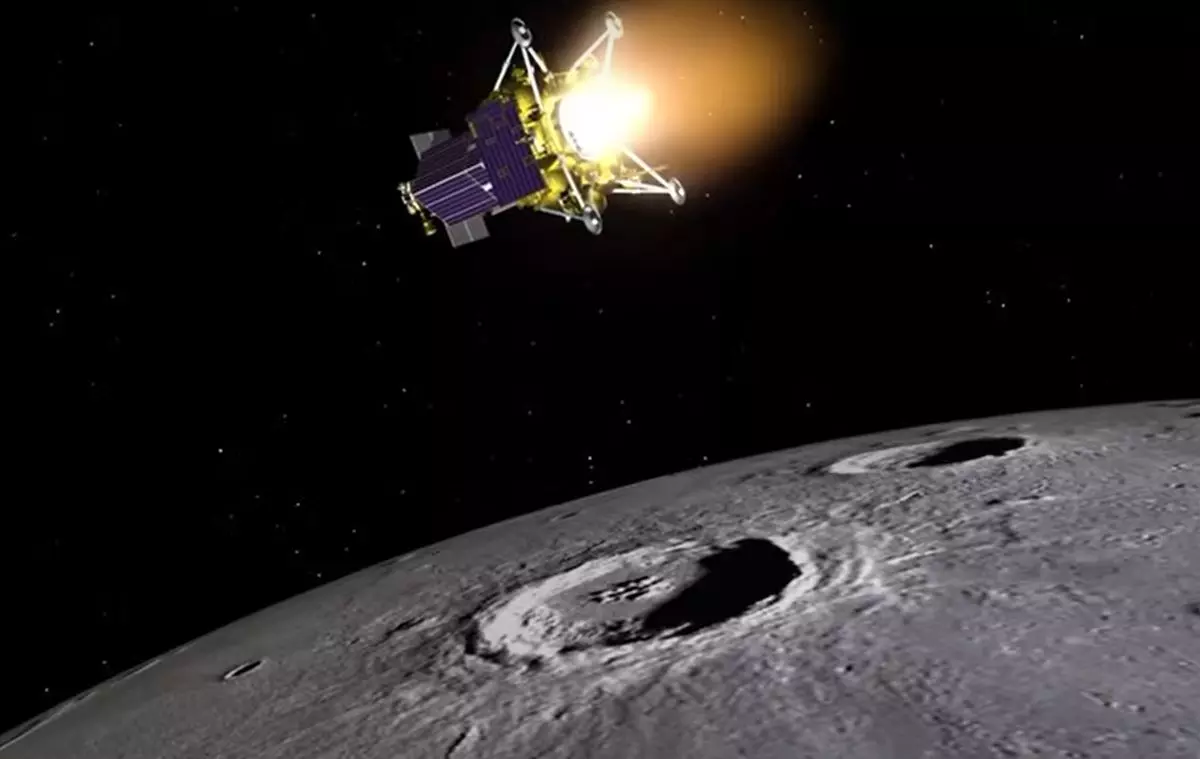Culling erudition from errors!

The recent crash landing of Russia's Luna-25 spacecraft onto the Moon's surface, marking the end of a two-decade-long lunar endeavour, cannot be denied as a significant setback for the Russian space agency, Roscosmos. However, it is crucial to recognise that failures are not uncommon in the challenging realm of space exploration. Luna-25's fate echoes a string of lunar mission disappointments, including that of India's Chandrayaan-2. While the Luna-25 mission's failure is disheartening, it should not be seen as an ending but rather as a stepping stone for lunar and space exploration. At present, Roscosmos has not released the exact causes behind Luna-25's failure, emphasising its commitment to forming a committee to thoroughly investigate the precise mode of failure. This should manifest in a commitment to transparency and learning from mistakes. Russia should also realise the importance of sharing valuable insights with the global space community. This experience should serve as a warning and a source of guidance, not only for Russia but for other nations embarking on lunar missions as well. India's Chandrayaan-3, for instance, is anticipated to achieve a soft landing near the unexplored south pole of the Moon in the immediate future. It must proceed with utmost caution, irrespective of the intricate safety provisions integrated into its operation. Failures in the recent lunar missions, particularly those focused on the Moon's south pole, demand careful consideration. It is undeniable that the landscape of lunar exploration has evolved significantly over the past few decades. Innovations in technology, coupled with newfound lunar objectives, have redefined our approach to lunar exploration. Luna-25, for example, was designed to study the optical, physical, and chemical properties of Moon dust, soil, and the atmosphere. These objectives are in line with a broader international goal to harness the Moon's resources, particularly water, and lay the groundwork for sustainable lunar presence. Water is the linchpin of future lunar exploration. Its discovery in solid form near the Moon's south pole would revolutionise space endeavours in multiple ways. First and foremost, it would extend astronauts' lunar stays, reducing costs significantly, as each kilogram or litre of payload transported to the Moon currently costs around USD 1 million. Second, lunar water could be processed into fuel, slashing the expense of transporting fuel from Earth. Finally, utilising the Moon's surface as a launchpad for deep space exploration could lead to a dramatic reduction in exploration costs. The failure of Luna-25 is not an end but a new beginning. Russia still intends to send more spacecraft to the Moon under the Luna series, albeit with potential delays. Moreover, Russia, along with China, is planning to establish a lunar space station to facilitate research on the Moon's surface and in lunar orbit. NASA is aggressively pursuing its Artemis Accord program, aiming to return humans to the Moon. India, in addition to Chandrayaan-2, is gearing up for a joint Lunar Polar Exploration (Lupex) mission with Japan, targeting the shadowed regions of the Moon by 2026. Japan is simultaneously planning to launch a smart lander mission, known as SLIM, this month. The quest to explore the Moon's surface has pragmatic motives, and failures should be seen not as insurmountable obstacles but as catalysts for more determined endeavours. Nations, however, must exercise rationality and caution in their approach. The lessons learned from Luna-25's crash landing should be shared with the global space community, fostering collaboration and a spirit of learning from one another's mistakes. Space exploration is inherently fraught with challenges, risks, and setbacks. The quest to unlock the Moon's secrets and potential resources demands resilience, international cooperation, and a commitment to continuous improvement. Luna-25's failure, while disheartening, reminds us that the path to the stars is paved with both triumphs and tribulations. As we move forward, let us remember that from every setback, we gain valuable experience and insight, bringing us one step closer to realising humanity's enduring dream of exploring the cosmos.



